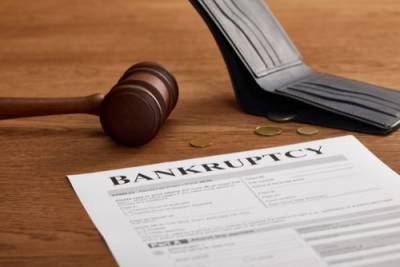How to Legally Maximize Your Bankruptcy Exemptions
 If you are considering bankruptcy, you will want to determine how to receive relief from your debts while retaining as much of your money, property, or other assets as possible. If you are planning to file for Chapter 7 bankruptcy, certain assets may be subject to liquidation, meaning that you will need to surrender them so they can be sold to repay some of the debts you owe. However, certain types of exemptions will apply, and you will not be required to surrender assets that are exempt. When planning for bankruptcy, it is important to know how to maximize your exemptions while also avoiding any fraudulent actions that could affect your case.
If you are considering bankruptcy, you will want to determine how to receive relief from your debts while retaining as much of your money, property, or other assets as possible. If you are planning to file for Chapter 7 bankruptcy, certain assets may be subject to liquidation, meaning that you will need to surrender them so they can be sold to repay some of the debts you owe. However, certain types of exemptions will apply, and you will not be required to surrender assets that are exempt. When planning for bankruptcy, it is important to know how to maximize your exemptions while also avoiding any fraudulent actions that could affect your case.
Making the Most of Bankruptcy Exemptions in Texas
Debtors who file for bankruptcy in Texas will use the state's laws to determine what assets will be exempt from liquidation. It is important to understand what types of property will be exempt. Texas has some very generous exemptions, including a homestead exemption that allows property owners to keep the full value of the equity they own in their family home. Exemptions are also available for personal property, including one vehicle for each member of a family who has a driver's license, household items, clothing, family heirlooms, athletic equipment, bicycles, tools of the trade, two firearms, jewelry (as long as it does not make up more than 25 percent of the total value of exempt assets), and family pets. Retirement savings accounts will also generally be exempt.
Once you understand the types of exemptions that apply to you, you may be able to make some adjustments to ensure that you will be able to avoid the loss of property. Since cash or funds in bank accounts are generally not exempt, you may be able to convert this money into exempt assets, such as by paying down the mortgage on your home, paying off one or more auto loans, depositing funds into an IRA, and buying food or other household items. You may also make payments toward any priority debts that cannot be discharged through bankruptcy, such as student loans, tax debts, or unpaid domestic support obligations. This will ensure that you will be able to keep as many of your assets as possible.
As you address issues related to exemptions, it is important to avoid any actions that could be considered fraudulent. While you may be allowed to take reasonable steps to make the most of the available exemptions, certain types of payments or transfers may not be permitted. If you transfer money to family members or business associates, or if you make payments to one or more creditors prior to filing for bankruptcy, these may be considered "preferential payments." Creditors may object to these types of transfers or to some of the exemptions you claim during the bankruptcy process, or they may even ask for a bankruptcy case to be dismissed altogether. To ensure that the actions you take will be legal, it is best to consult with a bankruptcy attorney and receive guidance on the types of payments and transfers that will allow you to maximize the exemptions in your case.
Contact Our New Braunfels Bankruptcy Exemptions Lawyer
If you are considering filing for bankruptcy, it is important to understand how to maximize your exemptions. By understanding which types of property are exempt from seizure and the types of transfers that are permitted, you can make the most of the exemptions available to you and keep as much of your property as possible during and after your bankruptcy proceedings. At the Law Offices of Chance M. McGhee, we can provide the legal help you need as you address these issues. Contact our Kerrville Chapter 7 bankruptcy attorney to schedule a free consultation and learn how we can help you complete the bankruptcy process successfully.
Sources:
https://statutes.capitol.texas.gov/Docs/PR/htm/PR.41.htm
https://statutes.capitol.texas.gov/Docs/PR/htm/PR.42.htm
https://wallethub.com/edu/d/bankruptcy-exemptions/25869






